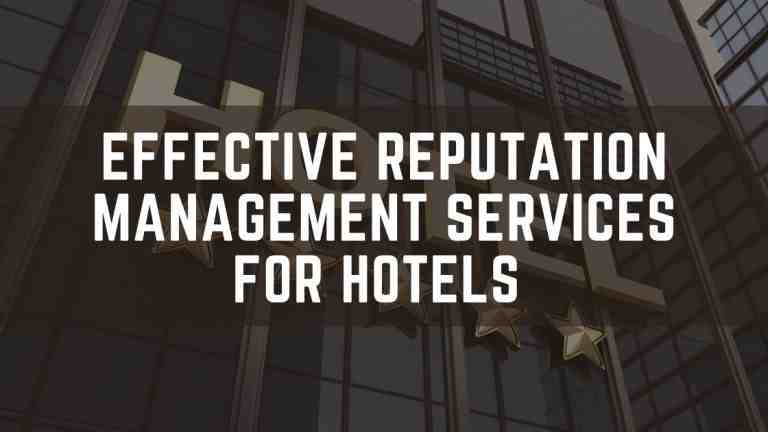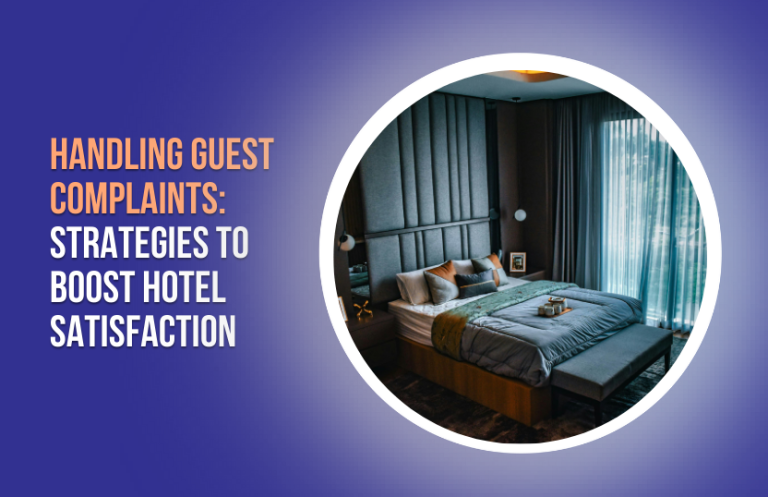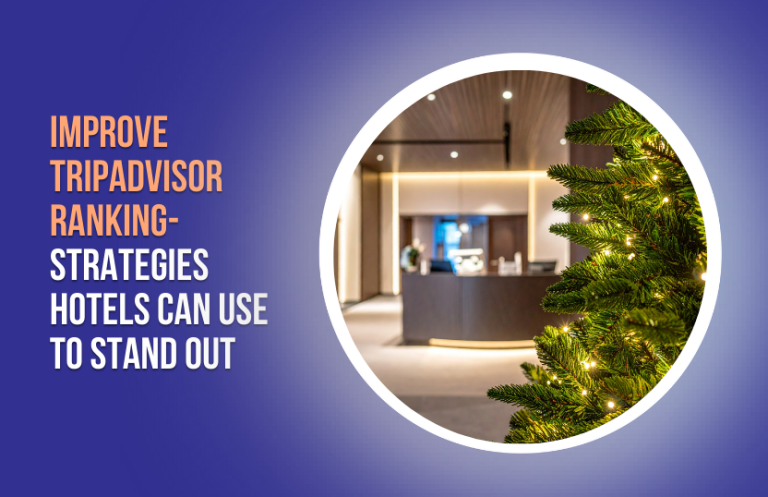Effective Hotel Reputation Management Services depends on what people say about it online. With millions of potential guests searching for hotels on platforms like Google, TripAdvisor, Booking.com, and Hotels.com, having a positive online reputation can significantly impact your success. This blog will explore how hotels can effectively manage their online reputation, why it’s crucial, and how to choose the right services to help you succeed.
What is Hotel Reputation Management?
It involves overseeing and influencing the online perception of your hotel. It includes monitoring guest reviews, managing your presence on social media, and handling any crises that may arise. Essentially, it’s about ensuring that when potential guests search for your hotel online, they find positive and accurate information.
Why is this important? A positive online reputation can lead to more bookings, happier guests, and ultimately, drives revenue. On the other hand, a negative reputation can drive potential guests away, harming your business. Given how quickly information spreads online, and the size of your online audience, managing your online reputation effectively is more important than ever.
Key Components of Reputation Management Services
There are several key areas to focus on when it comes to managing your hotel’s reputation. Each plays a vital role in ensuring that your hotel is perceived positively by potential guests.
Online Reviews Management
Guest reviews on platforms like Google, TripAdvisor, Booking.com, and Hotels.com significantly impact your hotel’s reputation. These are the sites that your future guests are using to make their booking decisions. Monitoring these reviews and responding to them promptly is crucial. When guests see that you actively engage with their feedback—whether positive or negative—they are more likely to trust your hotel and consider booking with you. And keep in mind, how you respond is often the first impression that a future guest has of your hotel. That means you’ll want to ensure your responses showcase the first-class hospitality for which you are known. Those responses should also highlight unique selling features, be free of spelling and grammatical errors, and help paint a picture of what makes your hotel so special and unique.
Encouraging guests to leave positive reviews can also strengthen your online reputation. For many of the websites, review volume often feeds into their algorithms for things like rank and placement on a list. With that knowledge in mind, consider all-inclusive strategies for encouraging reviews, like verbally inviting a review, or including a QR code to your review pages on the wrapping of your water bottles that the valet attendants might leave in a car upon departure.
Search Engine Optimization (SEO)
SEO plays a crucial role in how potential guests find your hotel online. By creating high-quality, relevant content that highlights the best aspects of your hotel, you can improve your search engine rankings. This means that when someone searches for a hotel in your area, they are more likely to see positive information about your property.
Using specific keywords related to your hotel and location can also help. For example, if your hotel is known for its beachfront views or proximity to popular tourist attractions, make sure those details are emphasized in your content. We can even focus on those topics during our guest interactions, encouraging our guests to become storytellers. As those stories are told with keywords like “beachfront views” or “balconies”, they further drive our SEO.
Social Media Management
Social media is another important part of brand protection. Developing a content strategy that showcases your hotel’s unique features and engages with potential guests can build a positive image. Regularly posting photos, videos, and updates about your hotel can keep your audience interested and engaged.
Actively interacting with followers on social media is just as important. Responding to comments, answering questions, and addressing concerns promptly shows that you care about your guests’ experiences. This can lead to increased trust and a stronger reputation.
Brand Monitoring and Analysis
Keeping track of what people are saying about your hotel online is a key part of review management. Using tools to monitor mentions of your hotel on review sites, social media, and other platforms can help you stay on top of guest feedback.
Sentiment analysis—understanding whether the overall tone of the feedback is positive or negative—can give you valuable insights into how your hotel is perceived. Comparing your hotel’s reputation with that of competitors can also help you identify areas where you can improve.
Public Relations (PR)
Public relations efforts can help shape your hotel’s reputation in a positive way. This might include crafting press releases on activations, building relationships with media outlets, and seeking out opportunities for positive coverage. By telling your hotel’s story in a compelling way, you can attract more attention and create a stronger brand image.
Local and international media coverage can be particularly valuable for hotels. By highlighting what makes your hotel unique, you can draw in guests from a broader range of locations.
Customer Feedback Systems
Implementing systems to gather and analyze customer feedback is another important aspect of reputation management. Surveys and feedback forms can help you understand what guests liked about their stay and what could be improved.
Using this feedback to make changes and improvements shows that you are responsive to your guests’ needs. This can lead to higher guest satisfaction and a stronger reputation over time.
Benefits of Professional Reputation Management Services
Professional reputation management services offer several benefits that can help your hotel succeed.
Enhanced Guest Trust
When potential guests see that your hotel has a strong, positive online reputation, they are more likely to trust you. This trust can lead to more bookings and repeat business, helping your hotel grow and thrive.
Improved Guest Engagement
Effective review management also involves actively engaging with guests, both online and in person. By responding to reviews, interacting on social media, being present in your public spaces for guest interactions, and addressing concerns, you can build stronger relationships with your guests. This engagement can lead to higher guest satisfaction and more positive reviews.
Competitive Advantage
Finally, a strong online reputation gives your hotel a competitive advantage. When guests are choosing between several hotels, they are more likely to choose the one with the best reviews and the most positive online presence. By investing in reputation management, you can stand out from the competition and attract more guests.
Choosing the Right Reputation Management Service Provider for Hotels
When it comes to selecting a review management service provider for your hotel, there are a few key factors to consider.
Key Factors to Consider
Look for a provider that understands the unique challenges of the hotel industry. They should have experience working with hotels and a proven track record of success.
Experience and Expertise
The provider you choose should also have expertise in the specific areas that matter most to your hotel, such as online reviews management, SEO, and crisis management. This ensures that they can offer the best possible advice and support.
Customized Solutions
Finally, it’s important to find a provider that offers customized solutions tailored to your hotel’s specific needs. A one-size-fits-all approach won’t be as effective as a strategy that considers your hotel’s unique strengths and challenges.
At The Reputation Lab, we work with hotels and restaurants to facilitate a review management strategy aimed at increasing online visibility, engaging your customers, and converting more future guests and revenue producers. If you are interested in learning how a reputation management strategy can benefit your business, we invite you to email us via our secure contact form to set up a no-pressure consultation or call us at 855-979-6800.




